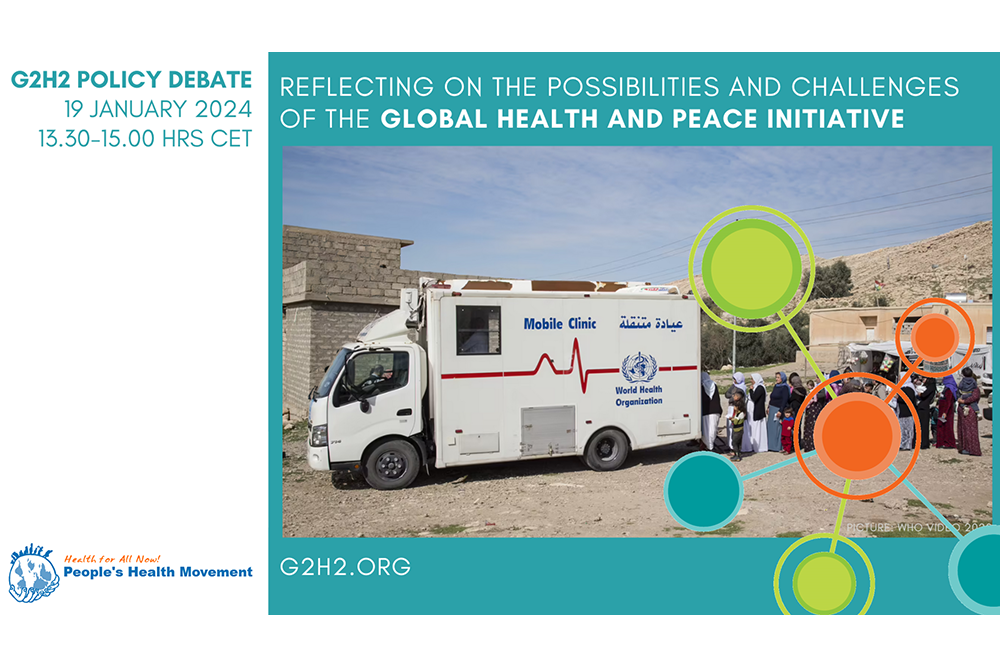Watch webinar now: Reflecting on the possibilities and challenges of the Global Health and Peace Initiative
In 2019 the Global Health and Peace Initiative (GHPI) was launched by Oman and Switzerland. The initiative aimed to use health as an entry point for building peace, and stemmed from an acknowledgement that WHO does much of its work in conflict affected settings. The roadmap faces a number of challenges. One comes from Member States concerned about WHO potentially exceeding its mandate. The most recent roadmap for the GHPI was tabled at WHA76, where India, Brazil and South Africa raised concerns about the initiative, cautioning that the roadmap “borders on the most delicate subject: peace and security, peace, nation and state sovereignty”. Another challenge stems from the deep tensions emerging among member states due to ongoing conflicts (e.g. in Ukraine, the Horn of Africa, and Gaza and the West Bank) and some Member States’ objections to WHO taking on a political role in conflict affected settings. In this context, what are the prospects of developing a GHPI roadmap that Member States can agree on? Would such a roadmap err on the side of pragmatism, or would it also seek to address structural drivers of war, conflict and occupation? Finally, to what extent is the roadmap drawing on the expertise of non-state actors and other UN agencies, who play a crucial role in delivering health services in conflict settings – and have increasingly been exposed to physical violence themselves?
This policy debate aims to bring attention to progress that has been made in developing a roadmap for the GHPI; to acknowledge the complex geopolitical context in which the GHPI is being developed; to draw on experts’ experiences to identify what successes the GHPI might deliver; and to reflect critically on the challenges and limitations of the GHPI’s aim to use “health as an entry point to build peace”.
- Language: English, French, Spanish
Session organized by: People’s Health Movement Global Health Governance Programme


